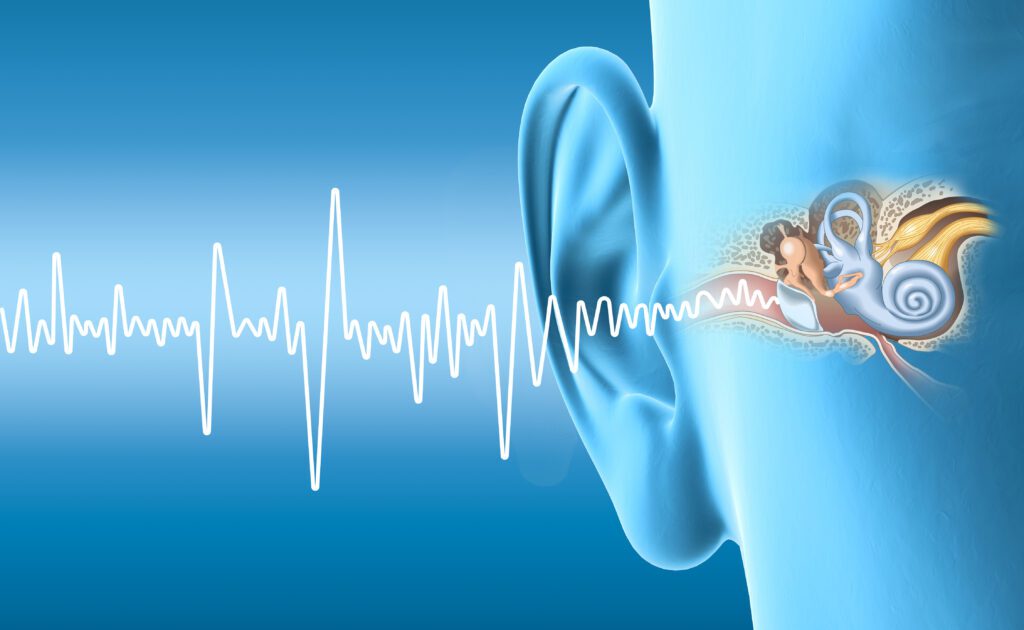Looking for Expert-Level VA Claim Answers?📱Call Us Now! 737-295-2226
Hi Veterans, Brian Reese here with VA Claims Insider, and in this expert-level post, I’m going to reveal and explain how to service connect your VA Disability Tinnitus Secondary Insomnia and Depression, even if you’ve already filed or been denied VA benefits previously.
You’ll also learn about secondary service connection and the “3 Magic Pillars” of success to include medical evidence requirements.
Finally, you’ll discover how to get a high-quality Nexus Letter to help you prove secondary service connection under the law.
Tinnitus Secondary Insomnia and Depression: Is There a Connection?

Yes, there is a strong correlation between veterans with Tinnitus and the coexistence of Insomnia and Depression.
One medical research study found that a majority of veteran patients with Tinnitus also exhibited Anxiety and Depression.
In addition, these veteran patients suffered more severe Tinnitus than did patients without Anxiety and Depression.
Descriptive analyses revealed that 79.1% of the 91 veteran Tinnitus sufferers had a diagnosis of Anxiety, 59.3% had Depression, and 58.2% suffered from both Anxiety/Depression.
These findings align with research done by other otolaryngologists in the field, who found that the likelihood of someone developing lifetime depression and anxiety is significantly higher among individuals with tinnitus than it is for the general population.
Severe, constant tinnitus can make it difficult to accomplish routine daily tasks.
Despite the severe effects tinnitus can have on your life, the maximum schedular disability rating for tinnitus is only 10 percent; however, due to the intense effects tinnitus can have on daily living, many veterans with this condition are unable to hold substantially gainful occupations and are therefore eligible for a total disability rating based on individual unemployability (a TDIU rating), especially if they are able to obtain service connection for depression secondary to their tinnitus.
Does the VA Rate Insomnia and Depression Together?
Insomnia is typically viewed as a symptom of an underlying mental health condition (e.g., Major Depressive Disorder or Generalized Anxiety Disorder) rather than a mental health condition on its own.
However, Depression is rated on its own as mental health condition
There are three types of Depression with Diagnostic Codes (DCs) that the VA recognizes for rating purposes:
- #1: DC 9433 Persistent Depressive Disorder (Dysthymia)
- #2: DC 9434 Major Depressive Disorder
- #3: DC 9435 Unspecified Depressive Disorder
A formal diagnosis of major depressive disorder requires at least two major episodes of depression lasting at least two weeks.
How Does the VA Rate Depression?
Depression ratings depend on the severity of a veteran’s mental health symptoms, meaning, the more severe your symptoms, the higher the VA rating for Depression.
The average VA Rating for Depression is currently at 70%, but veterans can be rated from 0% to 100% with breaks at 10%, 30%, 50%, 70%.
| VA Ratings for Depression Secondary to Tinnitus | VA Ratings for Depression |
| Total occupational and social impairment, due to such symptoms as: gross impairment in thought processes or communication; persistent delusions or hallucinations; grossly inappropriate behavior; persistent danger of hurting self or others; intermittent inability to perform activities of daily living (including maintenance of minimal personal hygiene); disorientation to time or place; memory loss for names of close relatives, own occupation, or own name. | 100% |
| Occupational and social impairment, with deficiencies in most areas, such as work, school, family relations, judgment, thinking, or mood, due to such symptoms as: suicidal ideation; obsessional rituals which interfere with routine activities; speech intermittently illogical, obscure, or irrelevant; near-continuous panic or depression affecting the ability to function independently, appropriately and effectively; impaired impulse control (such as unprovoked irritability with periods of violence); spatial disorientation; neglect of personal appearance and hygiene; difficulty in adapting to stressful circumstances (including work or a worklike setting); inability to establish and maintain effective relationships. | 70% |
| Occupational and social impairment with reduced reliability and productivity due to such symptoms as: flattened affect; circumstantial, circumlocutory, or stereotyped speech; panic attacks more than once a week; difficulty in understanding complex commands; impairment of short- and long-term memory (e.g., retention of only highly learned material, forgetting to complete tasks); impaired judgment; impaired abstract thinking; disturbances of motivation and mood; difficulty in establishing and maintaining effective work and social relationships. | 50% |
| Occupational and social impairment with occasional decrease in work efficiency and intermittent periods of inability to perform occupational tasks (although generally functioning satisfactorily, with routine behavior, self-care, and conversation normal), due to such symptoms as: depressed mood, anxiety, suspiciousness, panic attacks (weekly or less often), chronic sleep impairment, mild memory loss (such as forgetting names, directions, recent events). | 30% |
| Occupational and social impairment due to mild or transient symptoms which decrease work efficiency and ability to perform occupational tasks only during periods of significant stress, or symptoms controlled by continuous medication. | 10% |
| A mental condition has been formally diagnosed, but symptoms are not severe enough either to interfere with occupational and social functioning or to require continuous medication. | 0% |
Can I Service Connect Depression Secondary to Tinnitus VA Disability?

Yes, Depression can be service-connected secondary to Tinnitus.
The VA Disability Rates for Depression are determined using the “General Rating Formula for Mental Disorders” in CFR 38, Part 4, the Schedule for Rating Disabilities.
This category includes a scale of how severely your Depression affects or impairs your daily ability to function.
The assigned VA disability rates for Depression are 0%, 10%, 30%, 50%, 70%, or 100%.
For example, a veteran may only have a 10% rating for Tinnitus but could possibly receive a 30%, 50%, 70%, or even 100% VA rating (lower or higher rating possible as well) for Depression secondary to Tinnitus.
VA Disability Ratings for Depression Explained:
5 Tips to Increase Your VA Rating for Depression
Medical Research Study:
BVA Case History Example:
Depression secondary to Tinnitus is granted
Can VA Secondary Conditions be Service Connected?
VA secondary conditions include any of the 900+ disabilities listed in CFR Title 38, Part 4, the Schedule for Rating Disabilities that can be service connected SECONDARY to a current VA disability you’re already rated for at 0% or higher.
For example, let’s say you’ve got Tinnitus service connected at 10%, but because of the severity of your Tinnitus, you’ve developed Depression.
You can open a new VA claim on the VA.gov website, and file a claim for Depression Secondary to Tinnitus, and get service connected and rated at 0%, 10%, 30%, 50%, 70%, or 100% for your Depression, depending on the Frequency, Severity, and Duration of your symptoms as well as how your symptoms negatively affect your work, life, and/or social functioning.
What is Secondary Service Connection?
In accordance with 38 CFR § 3.310 disabilities that are proximately due to, or aggravated by, service-connected disease or injury, a current disability condition, which is proximately due to or the result of a service-connected disease or injury shall be service connected.
Service connection on a secondary basis requires a “showing of causation.”
A showing of causation requires that the secondary VA disability claim is “proximately due to” or “aggravated by” another service-connected disability.
There are three evidentiary elements that must be satisfied to prove VA secondary service connection under the law:
- A medical diagnosis of the secondary VA disability you’re attempting to link to the current service connected disability (must be documented in a medical record) AND
- A current service-connected primary disability (e.g., your current list of service connected disabilities from your VA.gov account) AND
- Medical nexus evidence establishing a connection between the service-connected primary condition AND the current disability you’re trying to connect secondary (e.g., Migraines, Sleep Apnea, GERD, IBS, Erectile Disfunction / Female Sexual Arousal Disorder, Radiculopathy, etc.)
Three Evidentiary Elements for Secondary Service Connection

The first part can be satisfied with any existing medical evidence in service treatment records, VA medical records, or any private medical records.
The second part can be satisfied with a veteran’s existing service-connected disability rated at 0% or higher.
The third part, and often the missing link needed to establish secondary service connection, can be satisfied with a credible Medical Nexus Letter (Independent Medical Opinion) from a qualified medical provider.
>> Click HERE for a list of doctors who write nexus letters for veterans!
Did you know there are HUNDREDS of common secondary VA claims that you can get service connected by law?
Truth bomb here veterans…
You could be missing out on thousands of dollars of tax-free disability compensation you deserve by law, and not even realize that your current VA disability might be caused or aggravated by an existing service connected disability.
Pro Tip: A VA Nexus Letter is HIGHLY RECOMMENDED to help establish secondary service connection.
Why?
Because “Medical Nexus Evidence” is needed to satisfy the third evidentiary element that must be satisfied to prove your secondary VA claim on an “at least as likely as not” basis.
Click HERE to read our Top 3 Reasons Why Veterans Should Get an Independent Medical Opinion (Nexus Letter).
Need a Nexus Letter to Help Establish Secondary Service Connection?
Click HERE now to join VA Claims Insider Elite, our premier education-based membership program, which also gets you discounted access to independent medical providers in our referral network for medical examinations, VA disability evaluations, and credible Nexus Letters for a wide range of conditions!
We’re a company OF veterans, BY veterans, FOR veterans.
And we help veterans get the VA rating they deserve in less time, if you’ve already filed, been denied, or have given up hope.
About the Author

Brian Reese
Brian Reese is a world-renowned VA disability benefits expert and the #1 bestselling author of VA Claim Secrets and You Deserve It. Motivated by his own frustration with the VA claim process, Brian founded VA Claims Insider to help disabled veterans secure their VA disability compensation faster, regardless of their past struggles with the VA. Since 2013, he has positively impacted the lives of over 10 million military, veterans, and their families.
A former active-duty Air Force officer, Brian has extensive experience leading diverse teams in challenging international environments, including a combat tour in Afghanistan in 2011 supporting Operation ENDURING FREEDOM.
Brian is a Distinguished Graduate of Management from the United States Air Force Academy and earned his MBA from Oklahoma State University’s Spears School of Business, where he was a National Honor Scholar, ranking in the top 1% of his class.




